Aggression is a relatively common feline behavior problem, and it can have several causes, from pets getting a bit too carried away while playing to pain and fear. Feline aggression can be quite serious, it can cause injuries and make life difficult for cats who are on the receiving end of the behavior. Signs of aggression may be subtle, for example the aggressor controlling access to resources, to obviously aggressive body language and physical fights. Keep reading to learn more about five signs of aggression in cats and how the behaviors impact those on the business end of the swats and pounces.

The 5 Signs of Aggression in Cats
1. Scratching and Biting
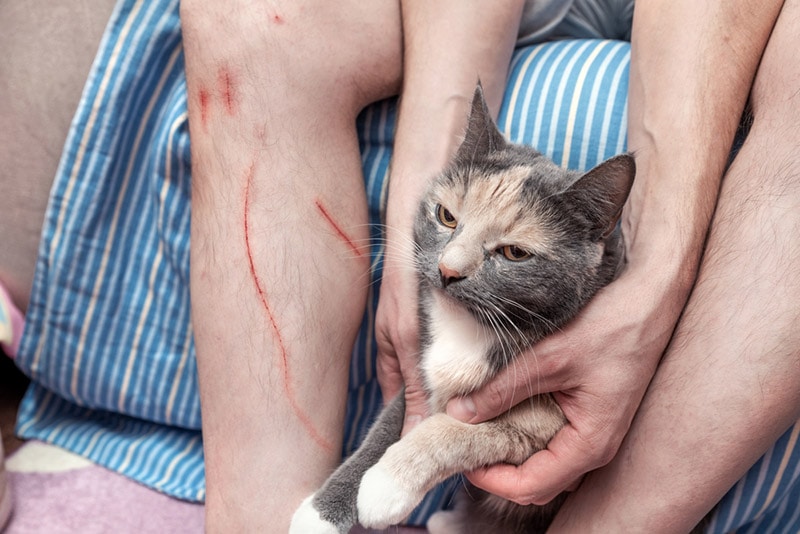
Cats sometimes react with aggression when they’re under the weather or in pain. Older cats who don’t feel well or who essentially just want to be left alone can lash out at younger pets who are interested in playing and having a good time.
When normally quiet and well-behaved cats scratch and bite other pets or people, it can sometimes be a sign of a health condition , and a veterinary checkup is necessary.
2. Attacking and Chasing
Cats are territorial creatures that feel most comfortable when their routine doesn’t change. Many cats don’t appreciate being asked to share their homes with new pets, which can lead some to lash out at new arrivals. Attacking and chasing other pets and family members is a sign of aggression.
Slow, controlled introductions that allow cats plenty of time to get used to each other’s presence can help prevent conflicts.
3. Tail Thrashing and Folded Ears
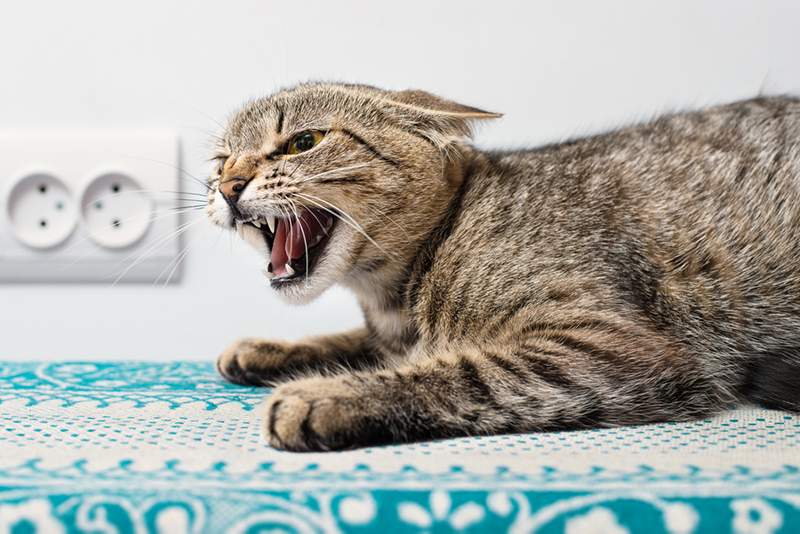
Cats sometimes get carried away when playing and end up going too far with the biting and pouncing. It’s often seen in younger cats who still have lots of energy. When they become aggressive, they’ll thrash their tail rapidly and fold their ears back.
Hand-raised kittens sometimes have trouble recognizing boundaries since they spent their formative weeks and months without playmates to help them learn how to interact nicely with others. Distracting cats who are about to shift into high gear is often all that’s needed to keep things under control.
4. Door Blocking and Harassment
In multi-cat households there is sometimes a ‘bully’ cat that acts aggressively toward other cats. Blocking doors is a way to control their movements and prevent other cats from coming and going as they please and accessing various resources within the home. These cats are often described as ‘dominant’ although the relationship within groups of cats is more complicated than a simple linear system.
5. Fluffed Up Fur and Hissing
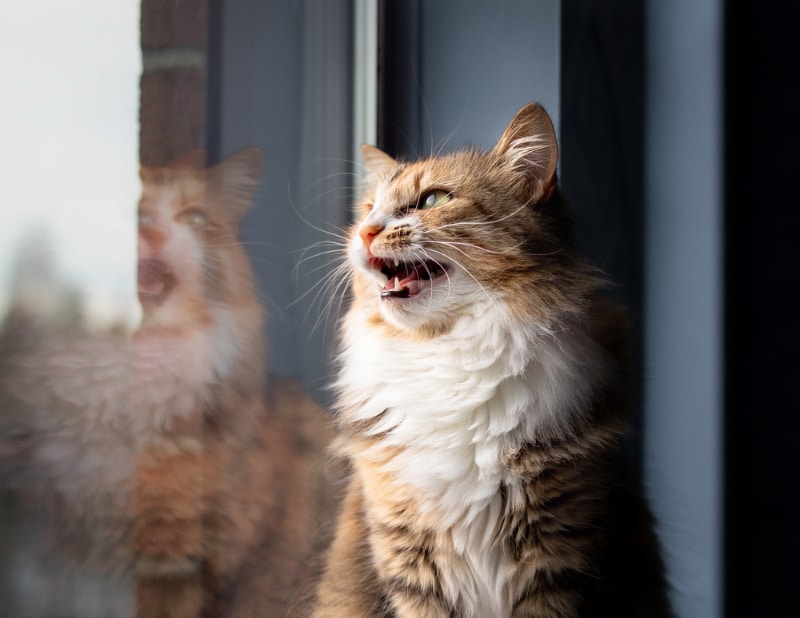
Frightened cats are often clear about their feelings of discomfort, and you can see the effect an aggressive cat has on another feline. They frequently tuck their tails underneath their legs, their fur that stands straight up, and they may hiss.
Scared cats generally calm down if left alone and are allowed to remove themselves from the conflict. Defensive aggression sometimes results when scared cats feel cornered and can’t figure out how to escape.

Frequent Asked Questions
What Are Some of the Effects of Aggression Among Cats?
Bullied cats often restrict their movements to avoid coming into contact with their harassers. Many stay within certain areas to avoid getting into altercations when crossing into territory the other cat has claimed as their own. Fights can break out in homes with bullying issues unless there are places for cats to retreat.
Cats on the receiving end of long-term aggression can become incredibly stressed out and develop stress-related illnesses. Those who are being bullied sometimes have litter box issues, either because they’re being denied access to the restroom or due to stress.
Can Fearful Responses Make Things Worse?
Within a multi-cat household there may be potential bullies and fearful responses almost always make the situation worse for the cat being harassed. Aggressor cats pick up on the victim’s response and it can encourage their aggressive behavior; their posturing allows them to access the other pet’s food, treats, or toys.
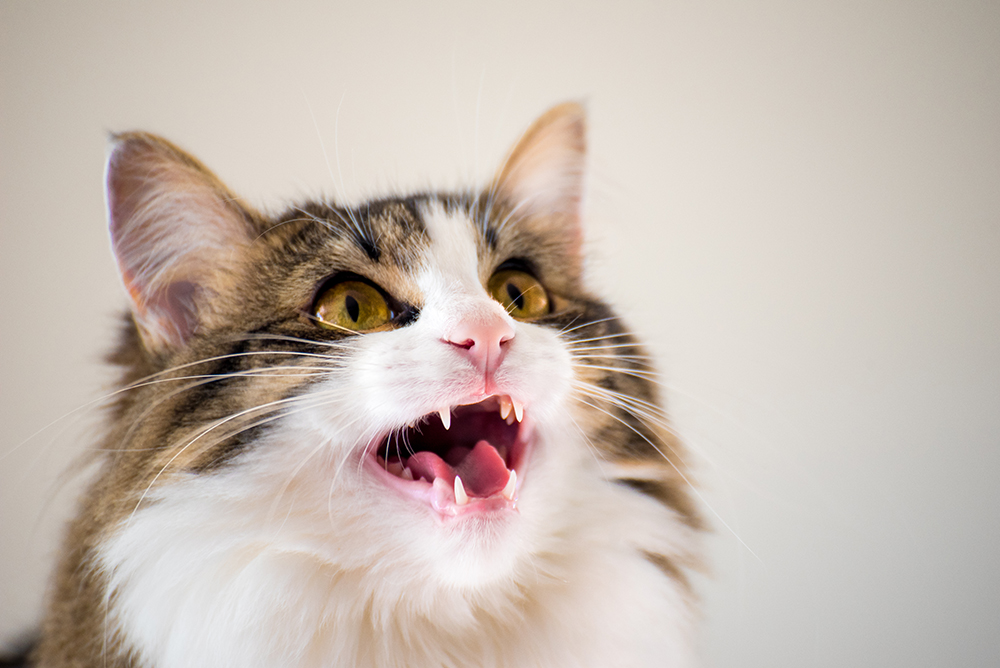
Are There Ways to Encourage Cats to Get Along?
You can sometimes stop the aggressive behavior before it progresses into actual fighting and attempt to identify the trigger for the aggression.
Providing more than enough resources in multi-cat homes is vital for preventing competition over access to resources. Having more than enough food and water bowls, toys, scratching posts, and litter boxes can prevent ‘dominant’ cats from making life difficult for others.
Installing several high platforms or shelves where your cats can relax can also minimize conflicts over territory and calming pheromone products can also help. There is no quick fix for aggressive behavior and it’s advisable to contact a veterinarian for help, in some cases of ongoing inter-cat aggression you might need assistance from a veterinary behaviorist.
If you need to speak with a vet but can't get to one, head over to PangoVet. It's an online service where you can talk to a vet online and get the advice you need for your pet — all at an affordable price!


Final Thoughts
Most cats living in the same house get along fine, but some situations don’t work out. The signs of aggression between cats can range from the aggressor denying other cats access to important resources to full on fighting.
Cats on the receiving end of aggressive behavior often suffer from chronic stress and are unable to relax in their home, many get to the point where they get physically ill. Providing sufficient resources and giving resident cats time to adjust to the presence of new pets gradually and under controlled circumstances, can keep the peace in multi-cat homes.
Featured Image Credit: Anatoliy Cherkas, Shutterstock
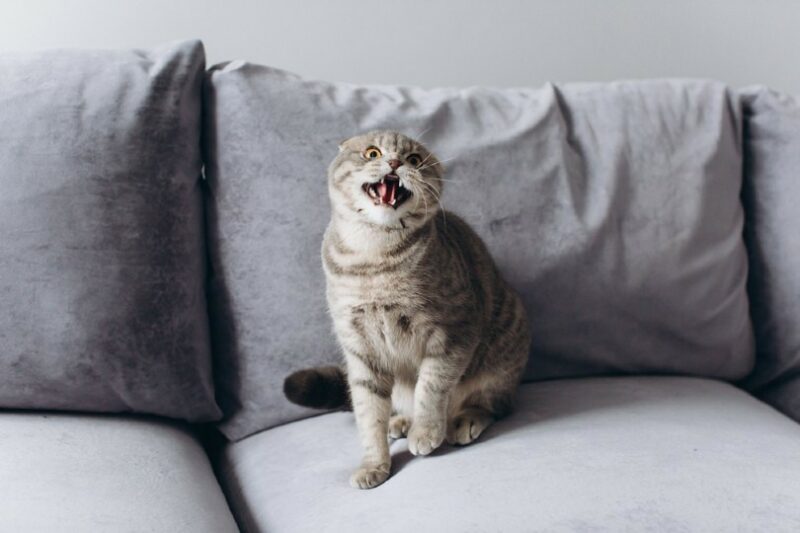

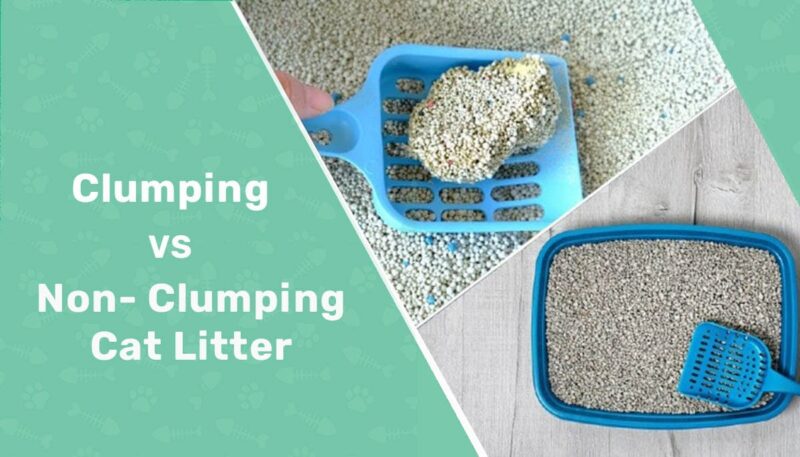
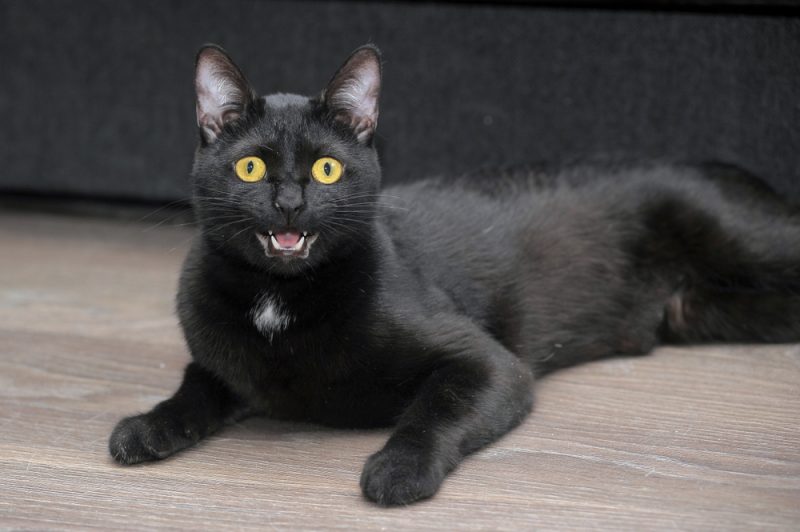
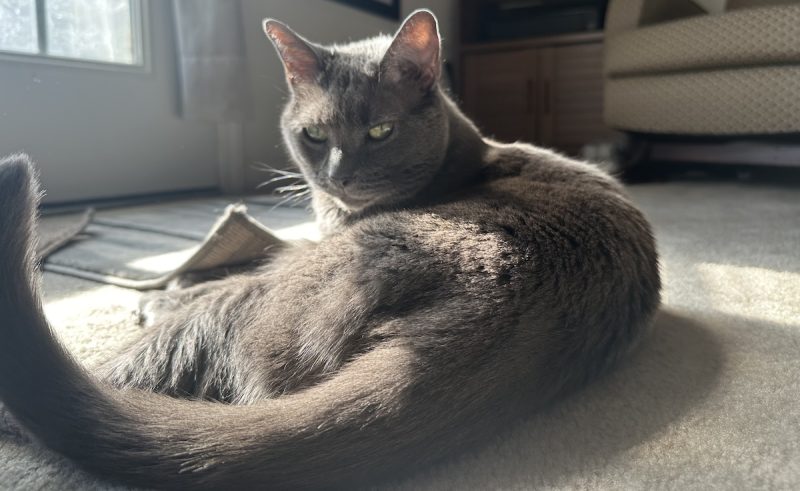

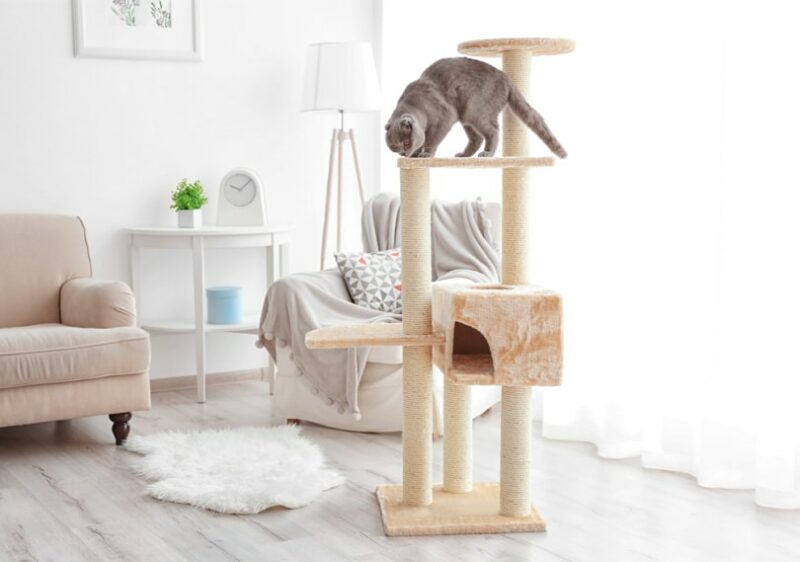

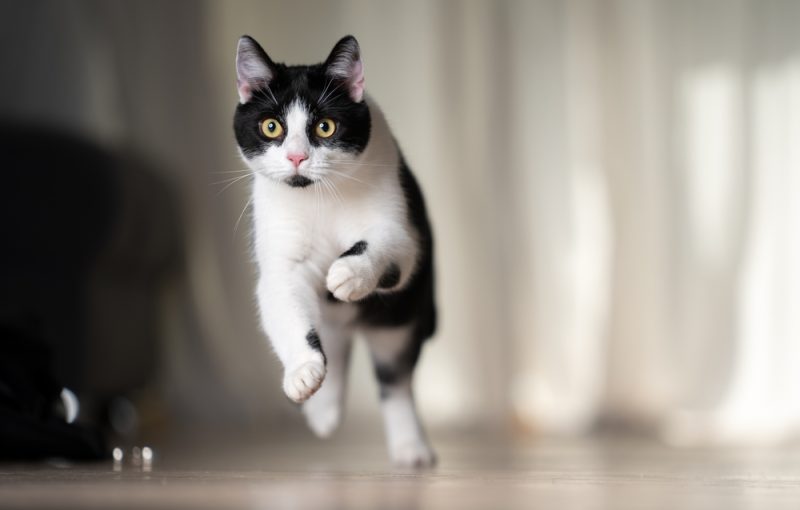







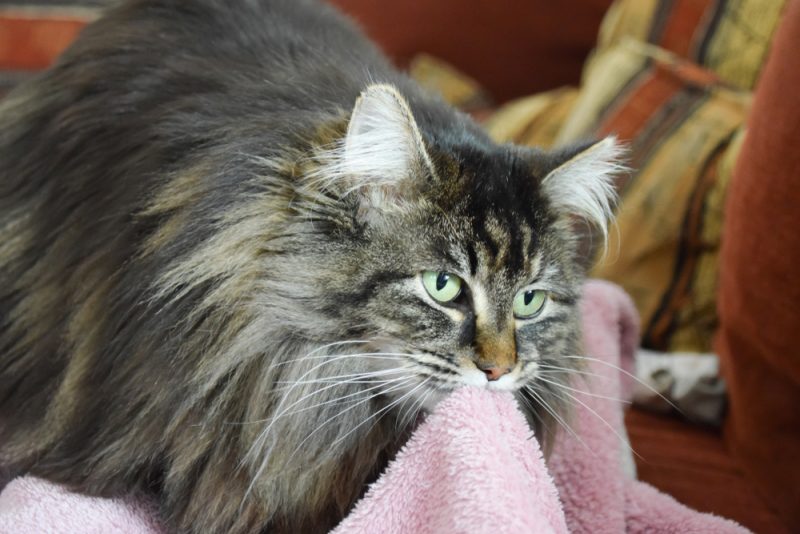



2 Responses
I have a 3 yr old ginger male who is generally very loving. The last 2 nights he has attacked me, his eyes are black and ears are back so I know the signs. I’ll just be sitting on the sofa and he attacks biting and scratching. Nothing different is happening at home it’s just out of the blue. Last night I put a pillow in front of him and told him to stop which he tried but finally stopped. Tonight it was full on biting and scratching me, I admit I was wrong but I totally lost it tonight, I had him in a choke hold and hit him a few times, of course then I felt terrible but I’m at a loss on what to do. I have puncture wounds on my arm and legs. There are no other animals here, he’s not in pain he just does this all of a sudden…if he doesn’t stop I’ll have no choice but to put him down my body can’t take it….is he a total loss? I’ve had him for the entire 3 yrs but he is a rescue. I’m so baffled at his behavior suddenly….HELP please.
We are very sorry to hear this, Cheril. As you stated, physical punishment is not the best way to deal with this behavior, and it may be reinforcing the aggression and further damaging your relationship with the cat.
The following tips might be helpful for you:
https://www.catster.com/cat-behavior/reasons-why-cats-bite-unprovoked/
https://www.catster.com/cat-behavior/why-is-cat-suddenly-biting-me/
https://www.catster.com/cat-behavior/why-does-my-cat-attack-me-and-no-one-else/
https://www.catster.com/ask-the-vet/why-does-my-cat-bite-me/
You can also book a one-on-one call with one of our veterinarians at Pangovet. They will be happy to assist you with tailored advice for your cat’s case.